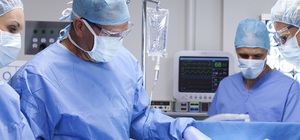Loading...
Found 31 transplant trials
A listing of transplant medical research trials actively recruiting patient volunteers. Search for closest city to find more detailed information on a research study in your area.
We are doing this study to see if CAR T-cell therapy (bb2121) and maintenance therapy with the drug lenalidomide can help delay multiple myeloma from coming back.
The purpose of this study is to evaluate the efficacy and safety of mocravimod as an adjunctive and maintenance treatment in adult acute myeloid leukemia (AML) patients undergoing allogeneic hematopoietic stem cell transplantation (HSCT).

The purpose is to investigate whether parametric response mapping measurements in healthy lung allografts can be used for early detection, prognostication, and phenotyping of CLAD. The target population is bilateral lung transplant recipients who are 6 months post-transplant or later and CLAD free at any of the study institutions. At …
This is a multicenter, interventional and observational study to understand factors affecting the likelihood of transplantation in patients without a human leukocyte antigen (HLA) matched family donor and to compare outcomes associated with pursuing an HLA-identical unrelated versus other alternative donor graft sources. Subjects' outcomes will be assessed using several …
We are requesting a reliance agreement with the University of Washington Human Subjects Division. The purpose of this study is to determine the safety and efficacy of two doses of CMV-MVA Triplex vaccine pre-transplant. The target population is CMV seronegative prospective liver transplant recipients. The main study interventions are pre-transplant …

We are investigating if using a special type of non-radiation imaging (inhaled hyperpolarized xenon with MRI) in lung transplant recipients can outperform current standard tests for transplant rejection. Presently, clinical assessments such as pulmonary function testing (PFT) are able to detect rejection of the transplanted lungs, however, they can only …

The research study is being conducted to develop a test to predict a common complication after lung transplant called primary graft dysfunction (PGD). Predicting PGD before using donor organs may help reduce deaths and improve outcomes of patients receiving a lung transplant in the future.

The THINKER-NEXT research study is being done to determine whether it is safe to give a kidney transplant from a donor with hepatitis C to a patient without hepatitis C. The recipient will then be given a drug called Epclusa for 12 weeks to treat hepatitis C. Patients who are …
We are requesting a reliance agreement with an external IRB (Duke University). The purpose is to refine the Lung Transplant (LTx) Textbook Outcome (TO) definition using retrospective clinical data and to build a machine learning algorithm to predict failure to achieve the refined TO for LTx. A retrospective cohort will …

The purpose of this study is to evaluate the outcomes of liver transplant when the donor is placed on a normothermic perfusion machine prior to donation of the liver. The perfusion machine restores oxygenated blood flow to organs in the abdomen such as the liver. The use of the machine …